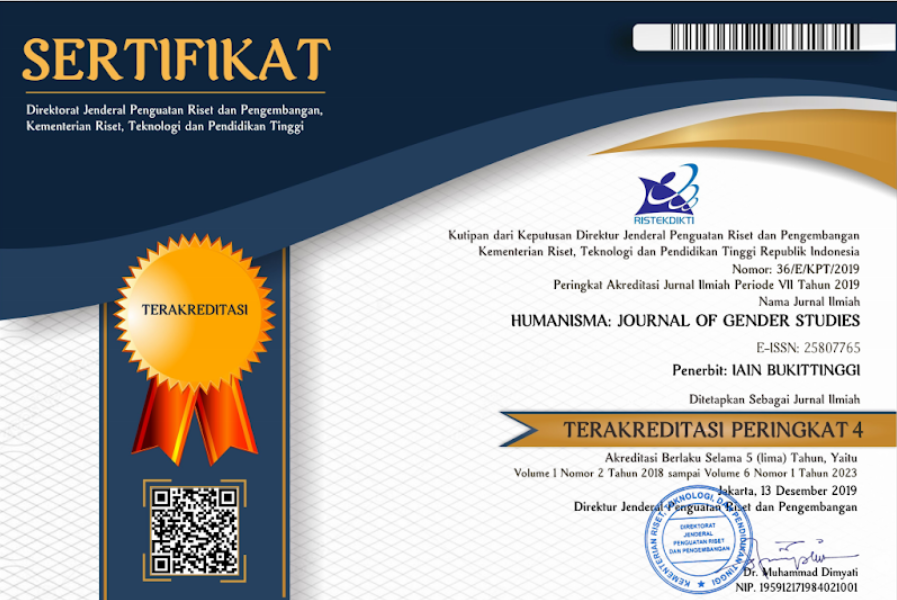Relationship Patterns of Extremist Convicted Husbands and Wives in Indonesia
DOI:
https://doi.org/10.30983/humanisma.v8i1.8550Keywords:
Convicted Spouses, Terrorism Cases, IndonesiaAbstract
This paper examines the relationship patterns of extremist married couples in Indonesia. The analysis was carried out using the descriptive analysis method on the data collected through literature searches by utilising previous research reports from certain agencies and mass media reports related to convicted extremist couples in Indonesia. The results showed that there were two patterns of relationships formed between husband-and-wife terrorist couples. In the early phase of pre-ISIS (Islamic State of Iraq and Syria) women, the wife played more of a role as a follower of her husband (own property), while in the next phase (ISIS Cluster), there was a shift in the relationship between husband and wife terrorist couples, where the relationship that occurs is senior-junior partner; the wife is not just a follower but rather actively and independently in making decisions to become part of extremists to terrorists, both as seniors and juniors from their husbands. This shows the changing role of women in acts of terror, in line with changes in the husband-wife relationship of extremist couples. These phenomena can influence each other. The independence that women have begun to show in their involvement in the extremist world requires the state, apparatus, and society to see women from a different perspective. Women are not always the victims of extremist acts in the family.
Downloads
Published
How to Cite
Issue
Section
Citation Check
License
Copyright (c) 2024 Kholis Bidayati, Muhammad Alwi al-Maliki, Suci Ramadhan

This work is licensed under a Creative Commons Attribution-ShareAlike 4.0 International License.
Authors who publish with this journal agree to the following terms:
- Authors retain copyright and grant the journal right of first publication with the work simultaneously licensed under a Creative Commons Attribution-ShareAlike 4.0. that allows others to share the work with an acknowledgment of the work's authorship and initial publication in this journal.
- Authors are able to enter into separate, additional contractual arrangements for the non-exclusive distribution of the journal's published version of the work (e.g., post it to an institutional repository or publish it in a book), with an acknowledgment of its initial publication in this journal.
- Authors are permitted and encouraged to post their work online (e.g., in institutional repositories or on their website) prior to and during the submission process, as it can lead to productive exchanges, as well as earlier and greater citation of published work (See The Effect of Open Access).



